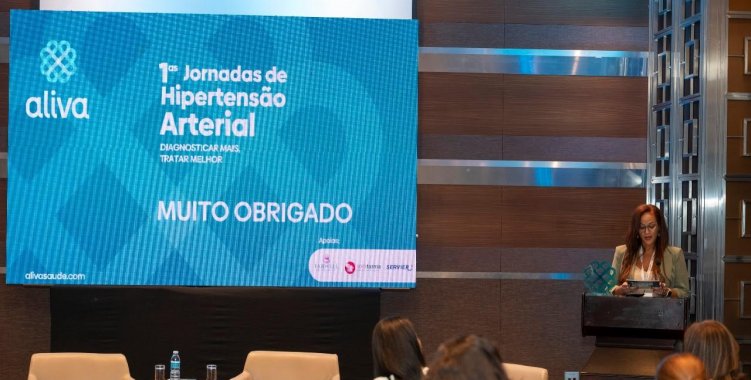"The organization of this event arose from the urgency of addressing one of the biggest public health problems in Angola and the world. Hypertension is a silent, highly prevalent and underdiagnosed condition, with a direct impact on cardiovascular mortality. As a health group, we feel responsible for promoting knowledge, updating clinical practices and reinforcing the role of early diagnosis, effective treatment and ongoing monitoring. These conferences aim to be the starting point for a regular cycle of scientific meetings, with a view to continuously improving the care provided", explained Vera Fontes, clinical director of Aliva.
It is estimated that, in Angola, more than 30 percent of the adult population suffers from hypertension, however, Vera Fontes warned that, "due to underdiagnosis and the lack of systematic screening, many cases remain unidentified. Studies carried out in the country, such as May Measurement Month (MMM), have revealed worrying data, with a high percentage of patients without regular monitoring".
High blood pressure is characterized by excessive blood pressure in the artery walls, above values considered normal. As a rule, high blood pressure is considered to be present when the maximum pressure is greater than or equal to 160 mmHg and/or the minimum pressure is greater than or equal to 95 mmHg.
Although it is a multifactorial condition, the most common causes include genetic predisposition, excess weight, excessive salt consumption, smoking, a sedentary lifestyle, chronic stress and excessive alcohol consumption. In some cases, high blood pressure may also be associated with other pathologies, such as kidney or endocrine diseases.
"The prevalence of this disease has been increasing, particularly in urban areas. Population growth, ageing, changes in lifestyle, sedentary lifestyle and less healthy eating habits are factors that have contributed significantly to this increase", said the Clinical Director of Aliva, arguing that, in order to prevent and control HTA, it is essential to adopt a healthy lifestyle, with a balanced diet, regular physical activity, smoking cessation and reduced alcohol consumption.
Regarding the main challenges in terms of treating hypertension in Angola, she pointed out "limited access to specialist health care, the scarcity of screening programmes, the lack of continuity in patient follow-up and, in many cases, low adherence to treatment. In addition, there is a need for more training for health professionals and greater health literacy among the general population".
The 1st Conference on Arterial Hypertension also addressed clinical practices and innovation in the control of hypertension, with unanimous agreement on the importance of an integrated approach, from primary care to internal medicine, and from conventional to integrative medicine. The event highlighted topics such as chronotherapy, the approach to hypertension in pregnancy, the role of renal denervation and the management of hypertension in specific contexts, such as chronic kidney disease or acute coronary syndrome.
"The promotion of individualized therapy and attention to the time of medication administration are just some examples of the new directions that science has indicated", concluded Vera Fontes.







